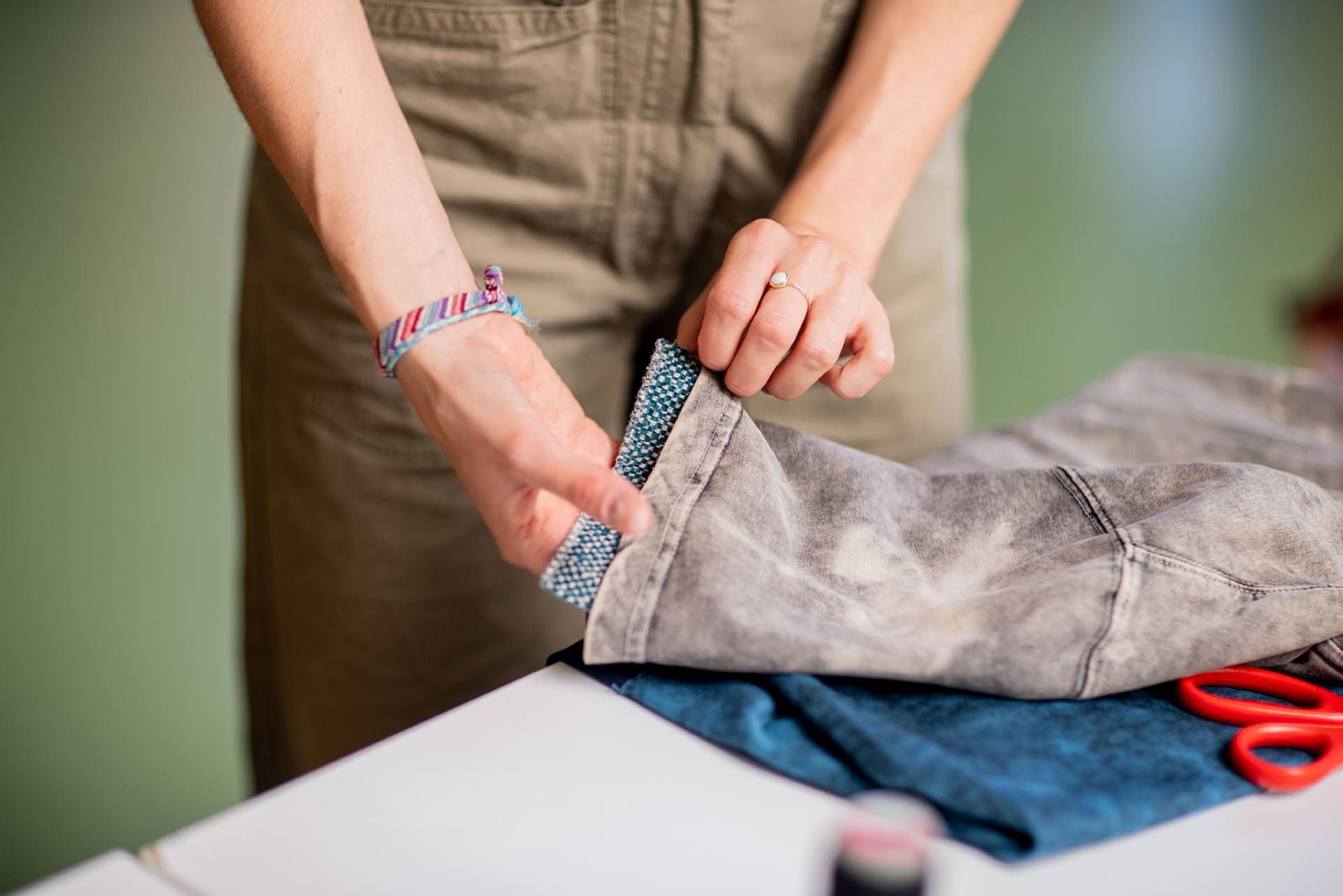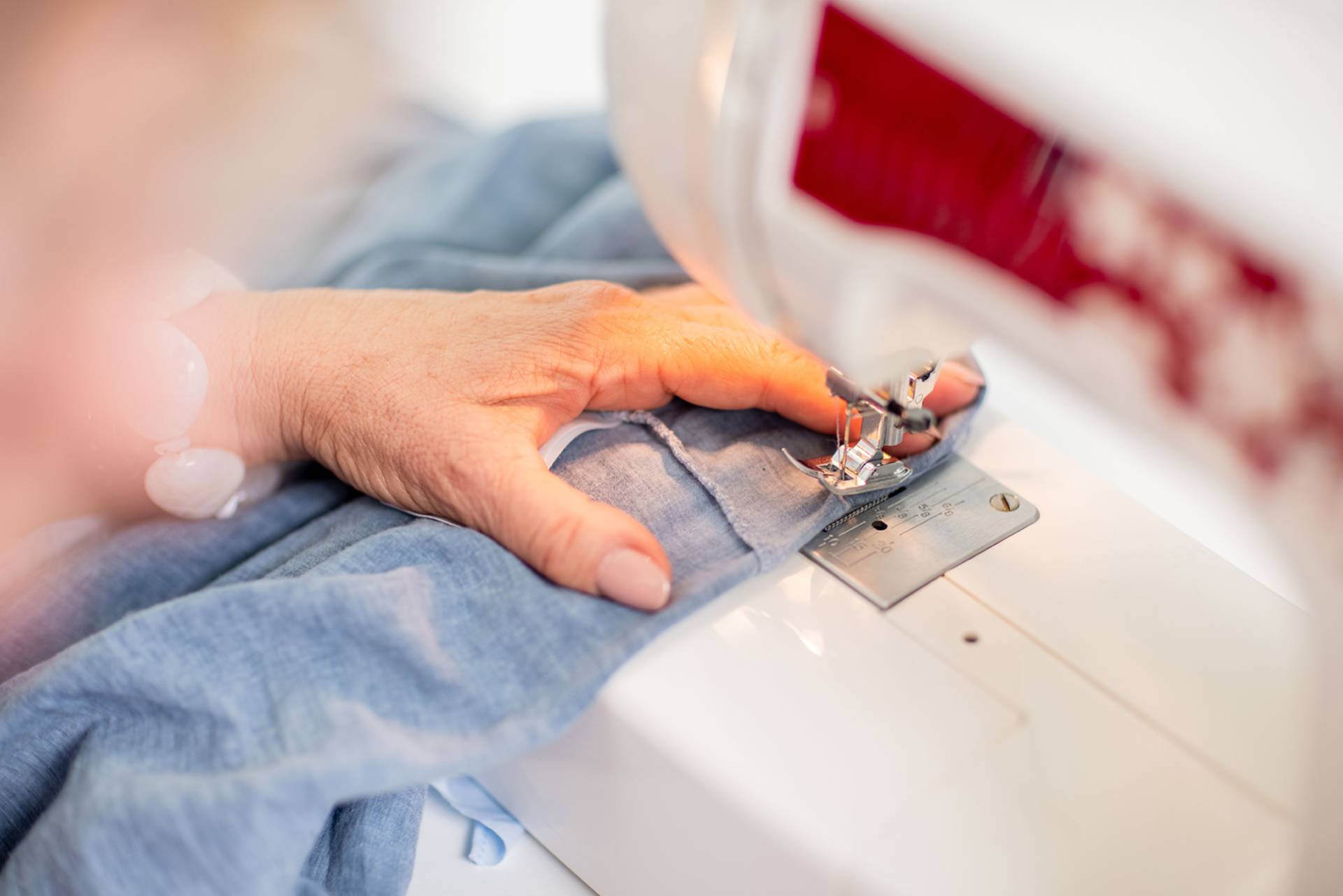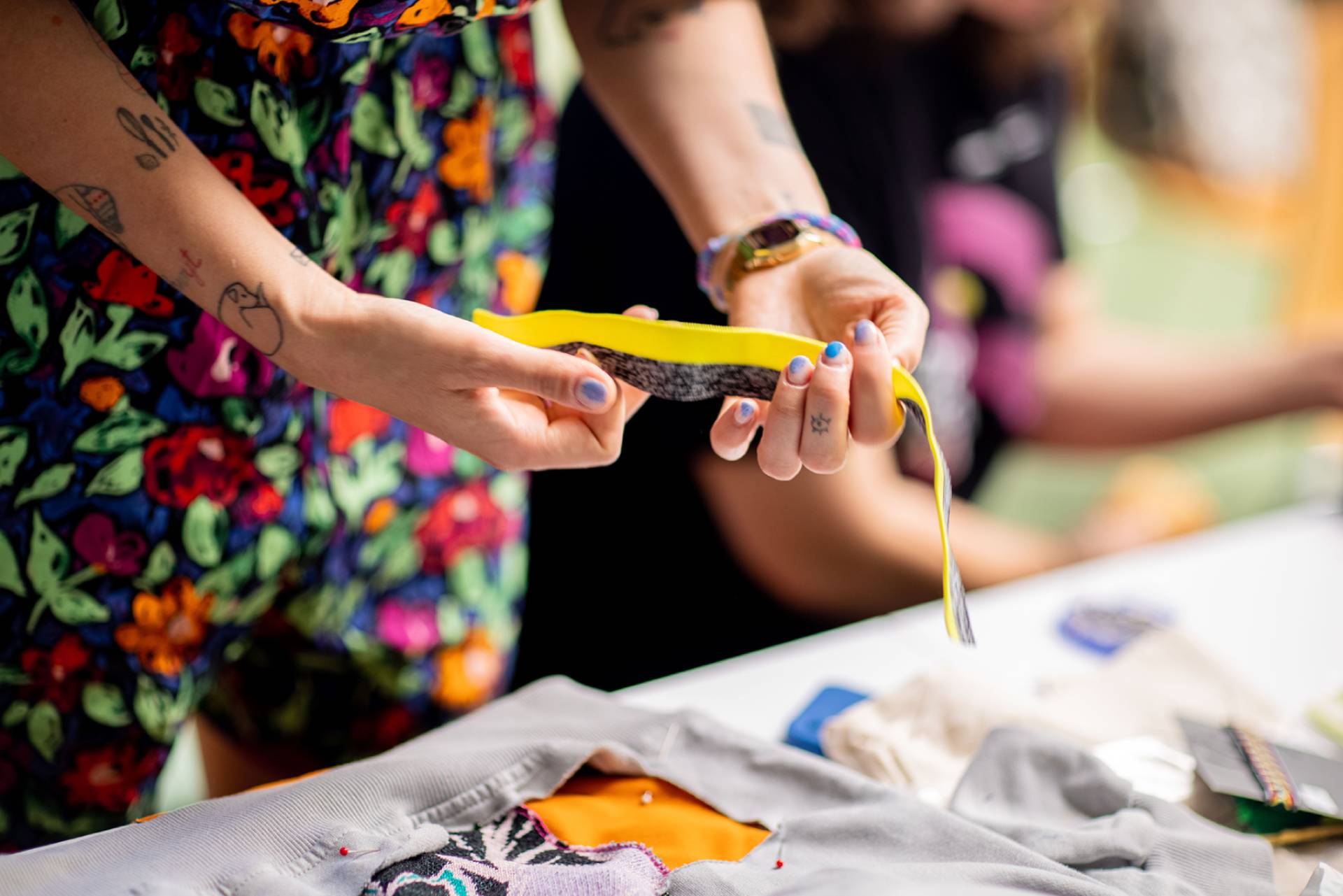Have the Poles forgotten how to repair clothes?

Are the skills to salvage damaged clothing becoming a relic of the past? This is what more than half of the Poles think. What is more, 42% of us do not repair items of clothing at all. Meanwhile, a change in consumer habits focused on prolonging the life of clothes is an essential part of the transition to a circular economy in fashion. Therefore, LPP, the owner of such brands as Reserved and Sinsay, decided to investigate customers’ attitudes towards repairing and altering clothes, as well as their state of knowledge in this area. The report was produced in cooperation with the research agency ARC Rynek i Opinia as part of the Wear Your Story educational campaign.
Recent years have seen an increase in environmental awareness and the development of new trends in the fashion world: conscious consumption, circularity and responsible use of clothing. But how does it show in practice?
Main findings of the survey
- The Poles are aware that throwing away clothes can have a negative impact on the environment.
- 80% of respondents believe that extending the life of clothes can have a positive impact on the environment.
- 71% would like to have access to a compendium of knowledge about repairing clothes.
- For 73% of the Poles, clothing repair skills are something everyone should have.
- The term “upcycling’ is unknown to 65% of respondents.
Many people replace damaged clothes with new ones, and as many as 87% will decide to buy a new pair of jeans if the repair cost is close to the price of the trousers in the store [1].
[1] The survey was conducted in February this year on a nationwide representative group (N=1015), in which women made up 51% and men 49%. Participants came from different regions of the country and were diverse in terms of age. Nearly half had completed secondary school and 41% had received a university degree. 39% of respondents live in rural areas and 61% in urban areas, including 12% in towns with more than 500,000 inhabitants.

Environmental awareness
The Poles are aware of the impact of throwing away clothes and buying new ones on the environment. They also see an opportunity to reduce this impact by repairing. 56% of survey respondents say they limit their purchases to reduce their ecological footprint. Above all, however, to protect the environment we separate our rubbish (80%), save water (74%) and use things as long as they are repairable (72%).
– Despite the growing environmental awareness and the desire to minimise our own impact on the environment, our survey shows that ¾ of Poles do not know what happens to their clothes after they are thrown away. This is also confirmed by statistics. For example, the Recycling Plant in Gdańsk reported that after sorting 1 tonne of mixed waste, the third largest fraction was clothing. So, on the one hand, we want to act for the benefit of the environment, and on the other hand, there are issues that we are not yet thinking about – says Ewa Janczukowicz-Cichosz, ESG expert at LPP.
We do want to repair
34% of respondents prefer to replace damaged clothes with new ones – and as much as 87% are more willing to spend the same amount of money to buy than to repair damaged jeans. It is visible then that the cost of extending the life of a garment plays a significant role.
Over 40% do not attempt to repair garments at all. The barrier mainly consists in a lack of skills, because, as the respondents indicate, the willingness is there. Almost ¾ of the respondents admit that they would like to have access to a compendium of knowledge on how to extend the life of clothes and learn basic tailoring techniques to repair their wardrobe. Most are able to cope with a detached button, but mending holes, removing stains or sewing in zips are already quite a challenge. The Poles therefore lack many of the skills that would allow them to save their beloved clothes from being thrown away.
Tailor to the rescue
However, you don’t necessarily have to pick up the needle and thread yourself – you can also use the help of professionals. This is what over a half of the survey participants do, although at the same time 38% think that tailoring services are expensive. Most of us will spend up to PLN 50 on them, and only a few more.
Cost is therefore the biggest barrier. LPP, wanting to encourage consumers to get their clothes repaired by specialists, has prepared a voucher campaign in cooperation with woshwosh. Customers can get vouchers for repairs for PLN 20 at www.dbajoubranie.pl and redeem them in a selected dozen or so cities in Poland.
We want to upcycle, but we don’t know how
What’s the story with upcycling then? It is a relatively new term, as confirmed by the survey: only 4% of participants were able to give a correct definition. Nearly 80% also could not tell the difference between upcycling and recycling. On the other hand, 57% of those surveyed admitted to having an item of clothing with sentimental value that they would like to transform in some way, and half are interested in repurposing clothing to give it a second life. The problem, however, again boils down to the lack of skills.

Change must be multifaceted
Consumer environmental awareness is growing and more and more people are ready to take action for sustainable fashion. The Wear Your Story campaign, the second edition of Look After Your Clothes, for which the survey was conducted, was created to show the Poles that repairing and altering clothes is not difficult or unprofitable. By adopting the perspective of looking at a wardrobe as a kind of time capsule, full of memories and history, LPP wants to encourage society to take a more responsible approach to clothing, not only at the declarative level. The campaign is a response to the need to move from a linear model of using clothes, based on the short life of the items in our wardrobe, to a circular model focused on extending the life of clothes.
– The transformation of the fashion industry has two aspects: business and consumer. Companies need to make efforts to minimise their carbon footprint, water consumption or develop opportunities to recycle materials – real actions that are also being taken by LPP. The second part, however, is to educate society and lay the foundations for new habits. This is the role of our campaign. We want to show that we are all working to reduce climate change – comments Dorota Jankowska-Tomków, Director of Procurement and ESG at LPP.
Download the full report: dbajoubranie.pl/en/report-repair-rework-clothes
______________________________________________________________________________
LPP is a Polish family business and one of the fastest growing clothing companies in the region of Central Europe. For 30 years, it has been successfully designing and selling the collections and accessories in Poland and abroad. LPP manages five fashion brands: Reserved, Cropp, House, Mohito, and Sinsay, whose offer is available today in stationary and online stores in 40 markets worldwide. The company has a chain of nearly 2400 stores with the total area of over 2 million m2 and distributes the products to 3 continents every year. LPP also plays an important role as it provides employment to 43 thousand people in its offices and sales structures in Poland, Europe, Asia, and Africa. The company is listed on the Warsaw Stock Exchange in the WIG20 index and belongs to the prestigious MSCI Poland index.

